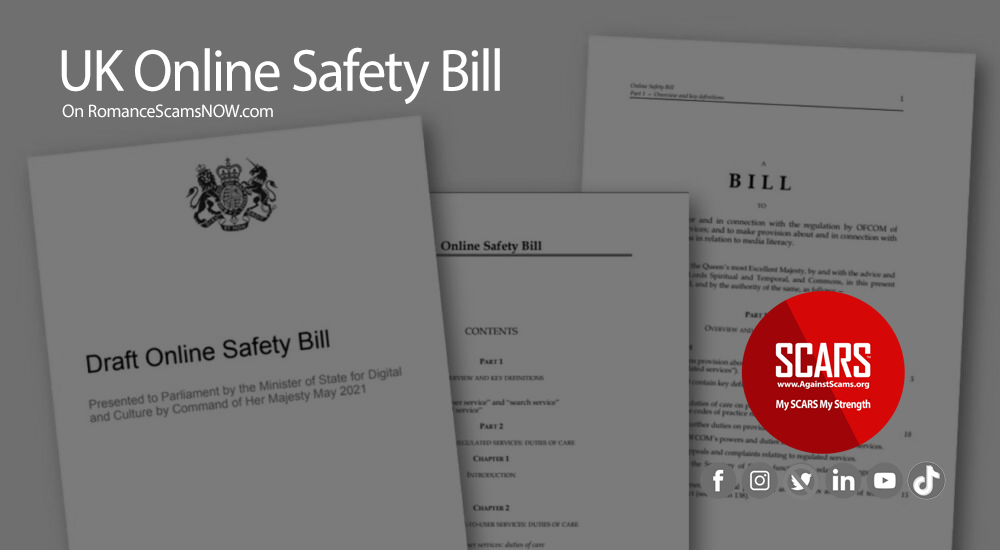UK Moves Forward With Online Regulation Of Social Media
New UK Law To Regulate Social Media & Search Engines
A SCARS Special Report
British Government Considers Punishment For Causing ‘Psychological Harm’ Through Online Abuse
To Accomplish This It Involves New Regulations On Social Media & Search Engines
Online “trolls” could face two years in prison for messages or content that cause “psychological harm” as the British government considers new legislation to combat online abuse. However, this could also apply to any content that does this, including scamming and fraud. But it may also come with a down side?
Almost anything that causes psychological harm might be included?
- Misleading news & information?
- Fake news?
- Political posts – even if true?
- Editorials and other free speech?
- Porn?
- What about your in-law’s family photos?
Obviously, the devil is in the details!
The UK’s Department for Culture, Media and Sports has accepted recommendations from the Law Commission to base crimes on “likely psychological harm” after a number of high-profile online abuse cases involving sports journalists and Premier League athletes. Sadly, scams were not considered, but scam victims may benefit from this regardless.
Ministers will consider a new law that will shift the focus from the content of a message to its effect, creating offenses of “threatening communications,” “knowingly false communication” (that would be a scam) and “pile-ons,” The UK Times reported.
“Threatening communications,” for example, will target messages and posts that contain threats of harm intended to mainly create a state of fear for the victim (this could include scam victims sending messages to impersonation victims too), while “pile-ons” would address an incident in which a number of individuals gang up on someone with harassing messages on social media – in other words an online ganging up on someone (this happens constantly with school children.)
The plan has been sent to the cabinet for approval, with Culture Secretary Nadine Dorries reportedly intending to add the new offenses to a bill that will be introduced to Parliament next month.
“We are making our laws fit for the digital age,” a government spokesman told The Times. “Our comprehensive Online Safety Bill will make tech companies responsible for people’s safety and we are carefully considering the Law Commission’s recommendations on strengthening criminal offenses.”
The move will likely prompt opposition from freedom of speech and civil liberties advocates. However, under the current US Communications Decency Act Section 230, most of the world has left tech companies to decide for themselves and be held immune for the acts of abuse that take place on their platforms. This would change that!
Former cabinet minister David Davis argued that assessing a message based on impact is too subjective.
Executive Director Jim Killock of Open Rights Group said the new offenses were too broad.
The New Bill
The new bill is one of a number of proposals to go before the government in the wake of a difficult year that saw protests against a number of issues, from Black Lives Matter to the announcement of a soccer Super League that many believed would threaten the financial well-being of sports across Europe.
SCARS is analyzing the potential for impact of this new law, but views the matter narrowly in terms of its impact on reducing online fraud and scams. We need to have ways to hold online platform publishers accountable, especially in light of the recent and extended revelations about Facebook – so bad that it prompted the company to change its name. In this regard, we are in favor of these new controls, however, as we have seen with the Communications Decency Act Section 230 that there are unforeseen consequences, and these need to be fully explored.
The great news is that as the UK works this out, it will become a template that the US and other countries can follow. In fact, there must be commonality among nations to regulate technology or it will just be more of the same chaos we experience now.




Leave A Comment